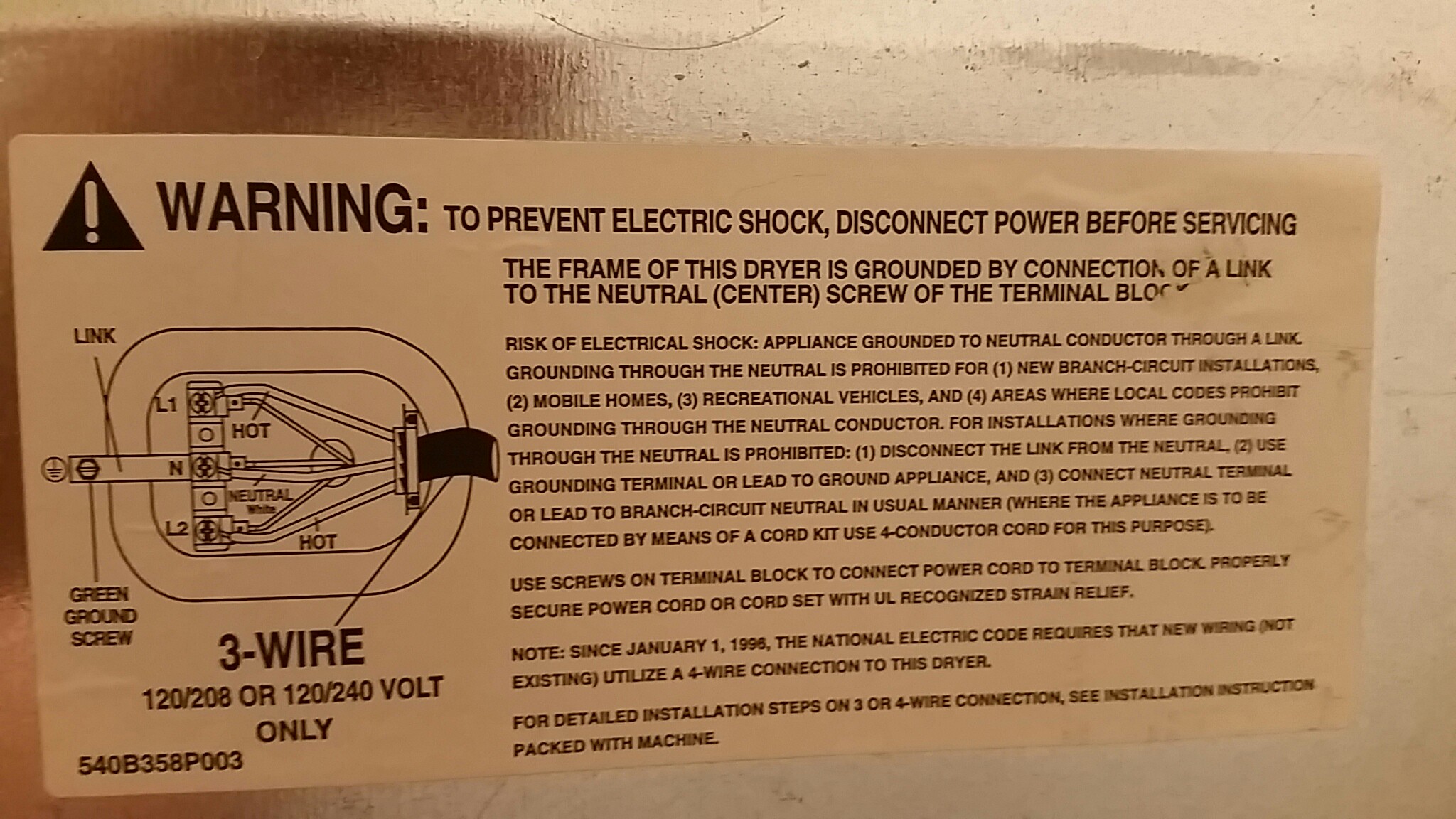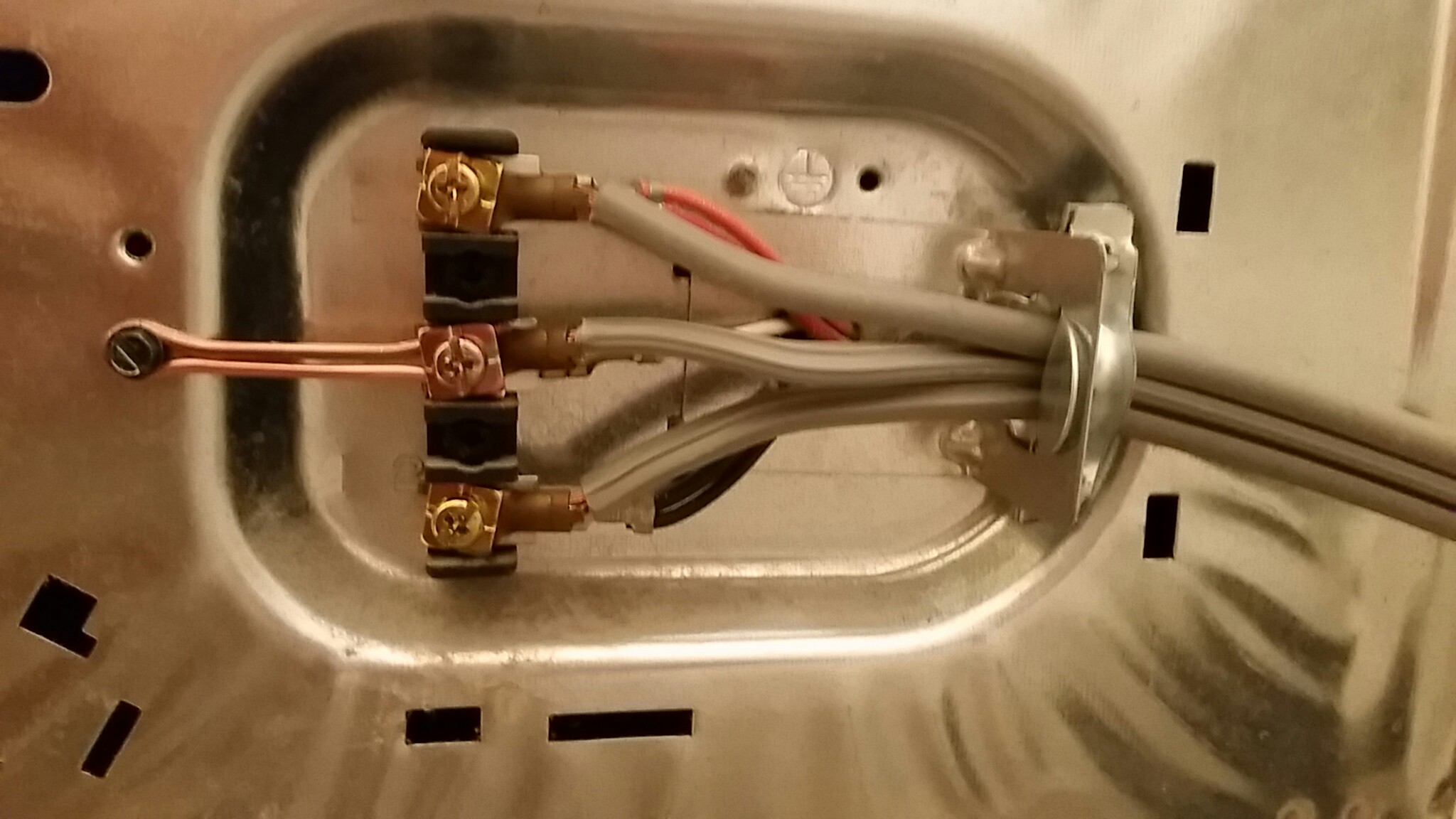I am backfitting a dryer with a 3-prong plug.
The manual says to connect the body to the neutral terminal using a copper ground strap.
I don't have a ground strap and none of the stores around carry them.
Is it safe to use a 10-gauge solid copper wire in place of the ground strap?
Model #: GE DCVH515EF0WW
The negative terminal is about 2 inches away from the grounding screw on the dryer body. I folded a 4-inch, bare, 10-gauge, solid copper wire into a long U. I fitted the U around the grounding screw and put the tips of the U under the screw at the negative terminal. This results in two 10-gauge segments that can carry current from the body to ground.


